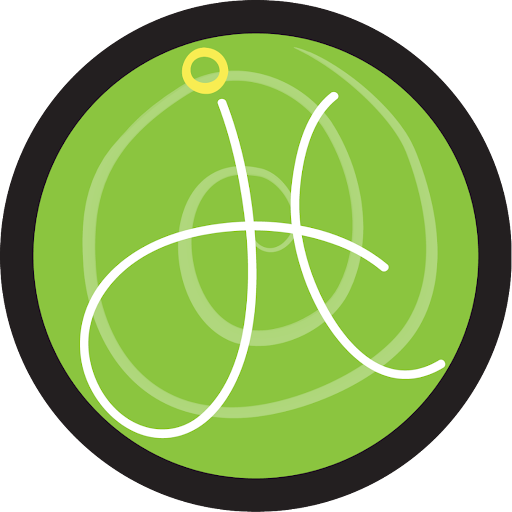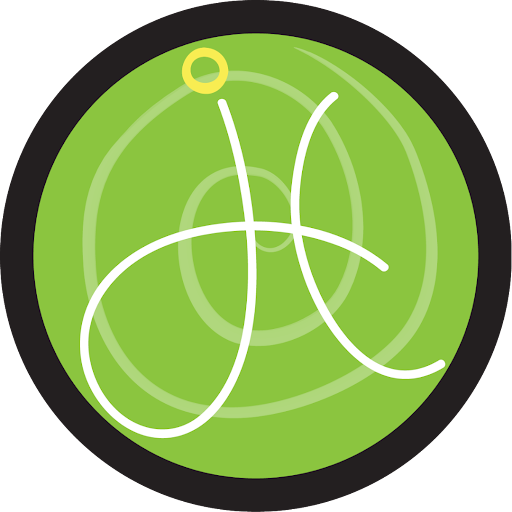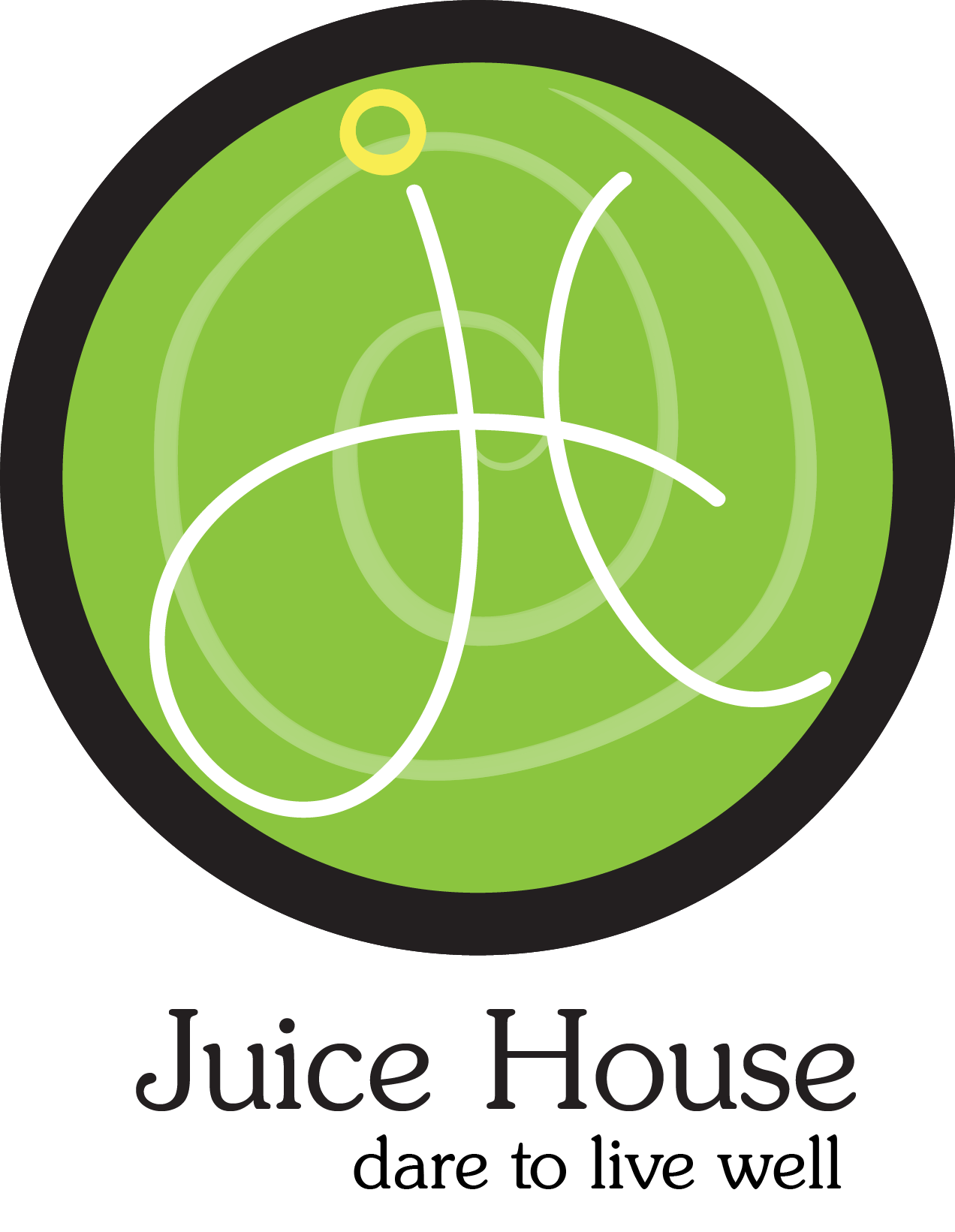Have you ever used a form of artificial intelligence? Tools like ChatGPT, Gemini or Dall-E have made AI commonplace for the average user. But, with AI being a rapidly evolving field and more employers looking for AI-related skill sets — ones students might not get exposure to through classes or internships — how do you prepare for entering a competitive workforce?
According to the World Economic Forum’s 2023 The Future of Jobs Report, more than 75% of companies plan to incorporate AI technologies within the next five years. However, according to a 2024 Digital Work Trends Report by Slingshot, only 23% of employees feel equipped with the knowledge and skills to use AI in their work. But, what if utilizing AI was easier than you thought?
On Tuesday, Nov. 12, 2024, a hands-on, low-code AI workshop was held in the Thomas and Elizabeth Brady Engineering Innovation Center at the University of Toledo to help bridge this gap, connecting students, faculty, staff and the community with industry experts to gain additional training and help students prepare for their futures. The event was hosted by Juice House along with Juice House’s iCode Blend and the College of Engineering with invited guest speakers from MathWorks — a leading developer of mathematical computing software. Registration opened at 10:00 a.m. with the workshop beginning at 10:30 a.m. with opening remarks given by Valerie Simmons-Walston, special advisor to the provost for community engagement and strategic partnerships. The workshop ran until 12:15 p.m., followed by a Q&A and closing remarks. Lunch was provided afterwards by Domino’s, for attendees to stay and network.
MathWorks was also invited to the university by Juice House last fall and presented a seminar on deep learning. But, this year’s event was different in that attendees could follow along on their own computers in real-time and with no previous programming knowledge required. A special MATLAB® workshop license was provided for guests who were led step-by-step through the demonstration.
Presented by MathWorks members Dr. Ahmed Mekky, a customer success engineer, and Scott Benway, a senior account manager, the workshop began with an overview of AI fundamentals pertaining to machine learning and deep learning. These concepts were then explored with three practical exercises using MATLAB interactive tools and apps to teach participants how to design and train various models and automatically generate code from their interactive workflows.
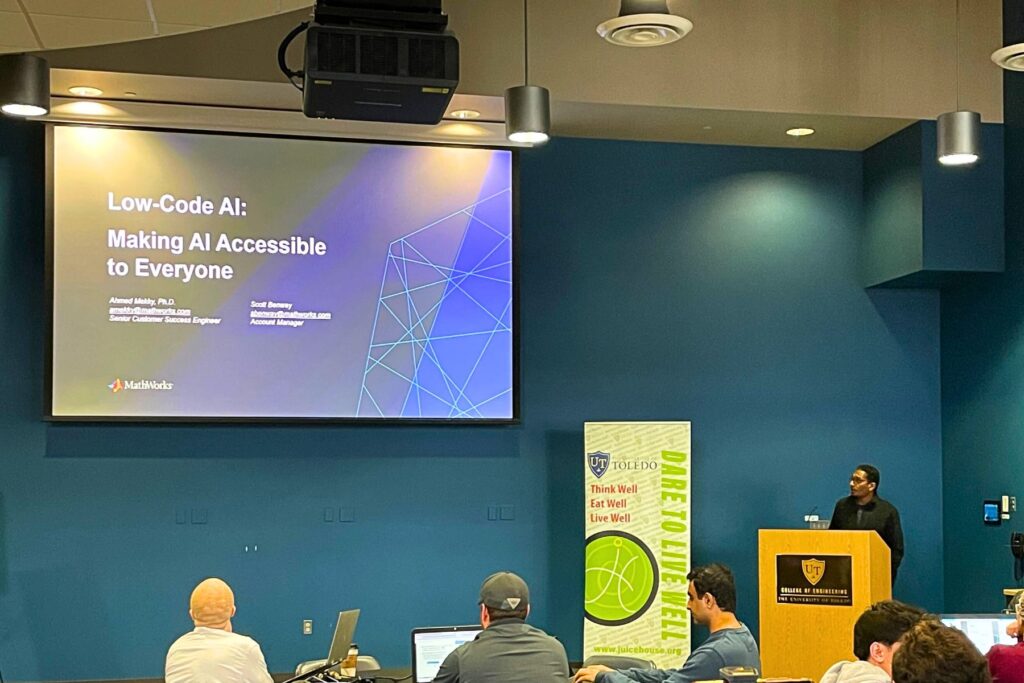
Sound complicated?
“The misconception is it has to be something for really deep technical engagement, but we’re finding AI technologies can be used even for just very common, everyday tasks and help us make those little things a little easier,” Benway said.
Benway and Mekky explained that AI doesn’t need to require extensive programming skills with software advancements in low-code programming.
“Low-code means you can accomplish some tasks without really being a programmer,” said Mekky. “[I]t lets you start working on AI as a novice, but also helps you learn AI while you’re doing it.”
Mekky, who holds a master’s and Ph.D. in aerospace engineering and a bachelor’s in mechanical engineering, mentioned that most people who work with AI are actually experts in other fields besides technology. Benway agreed. “All application areas are pulling in AI,” he said. Which is why making AI education and training accessible and approachable for people of all disciplines is so important.
“It’s an equity. It’s giving people equal chances to the trending tools like AI,” Mekky said.
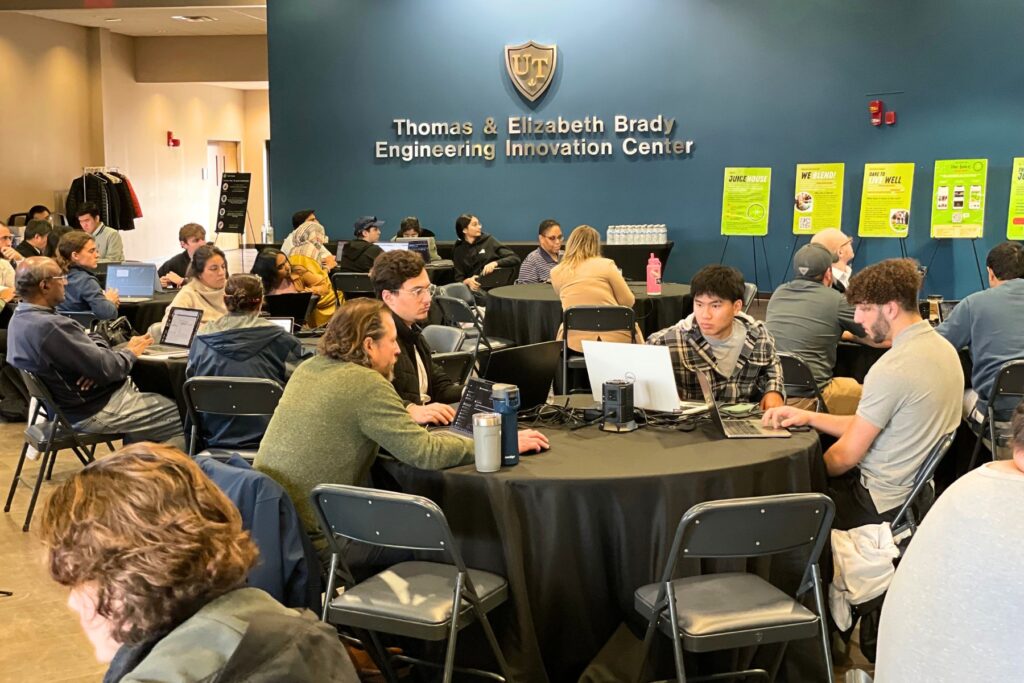
Now that AI has come this far and can be more easily replicated, it seems the question now is, how and where can it be used?
“I think also to unlock the potential of AI, you want a lot of people to know about how to use it…As you give people access, I think people will discover new and better ways to use it,” Mekky said.
And there are plenty of students who want to learn how to use it.
Jordan Jerome, a freshman at the University of Toledo majoring in mechanical engineering, didn’t know how machine learning worked prior to attending this workshop. “This low-code AI event gets people who don’t necessarily need to know code or be an expert, and I think they can just start learning it right now,” he said. “I think in the future…a lot of the jobs in the industry are going to get replaced by AI, but not in the way you think. It’s more of people who use AI are going to replace people who don’t use AI. So, I think it’s very important to get to know AI early on.”
Other students in attendance agreed.
“It’s pretty crucial for us, like this kind of resources are pretty helpful for students like us to learn new technologies and who [are] definitely looking for AI-related jobs,” Antardip Himel, a computer science and engineering student at the university, said.
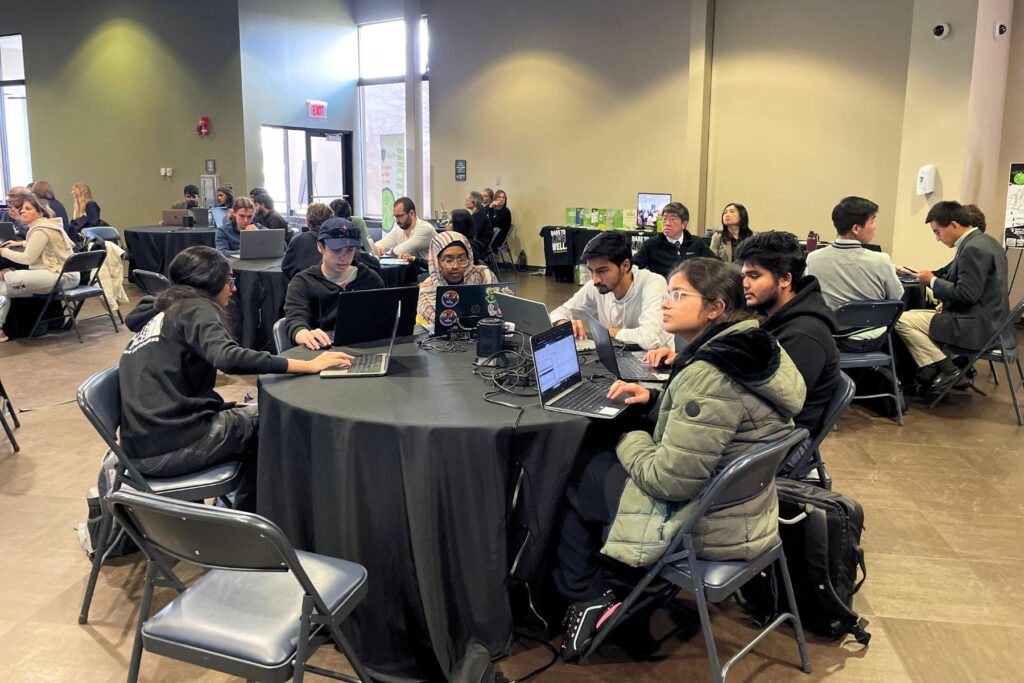
Participants reported positively about the experience of what they learned.
“The best part [is] that we trained [the data] and [did] the exercise…it was the best because it’s not just theory of the machine learning or AI. So we practice and I think it’s so…beneficial,” Nooshin Moghfaderi, a geologist and geophysicist who works at the university, said.
“For me, I’m just learning the concepts of it now…And while learning the concept, you do [those] small examples by hand, but being able to see how this actually looks like when you get into the code, or in this case low-code, it’s pretty interesting,” Dylan Brogan, a computer science engineering student, said.
The significance of the workshop’s availability on campus was agreed upon all around.
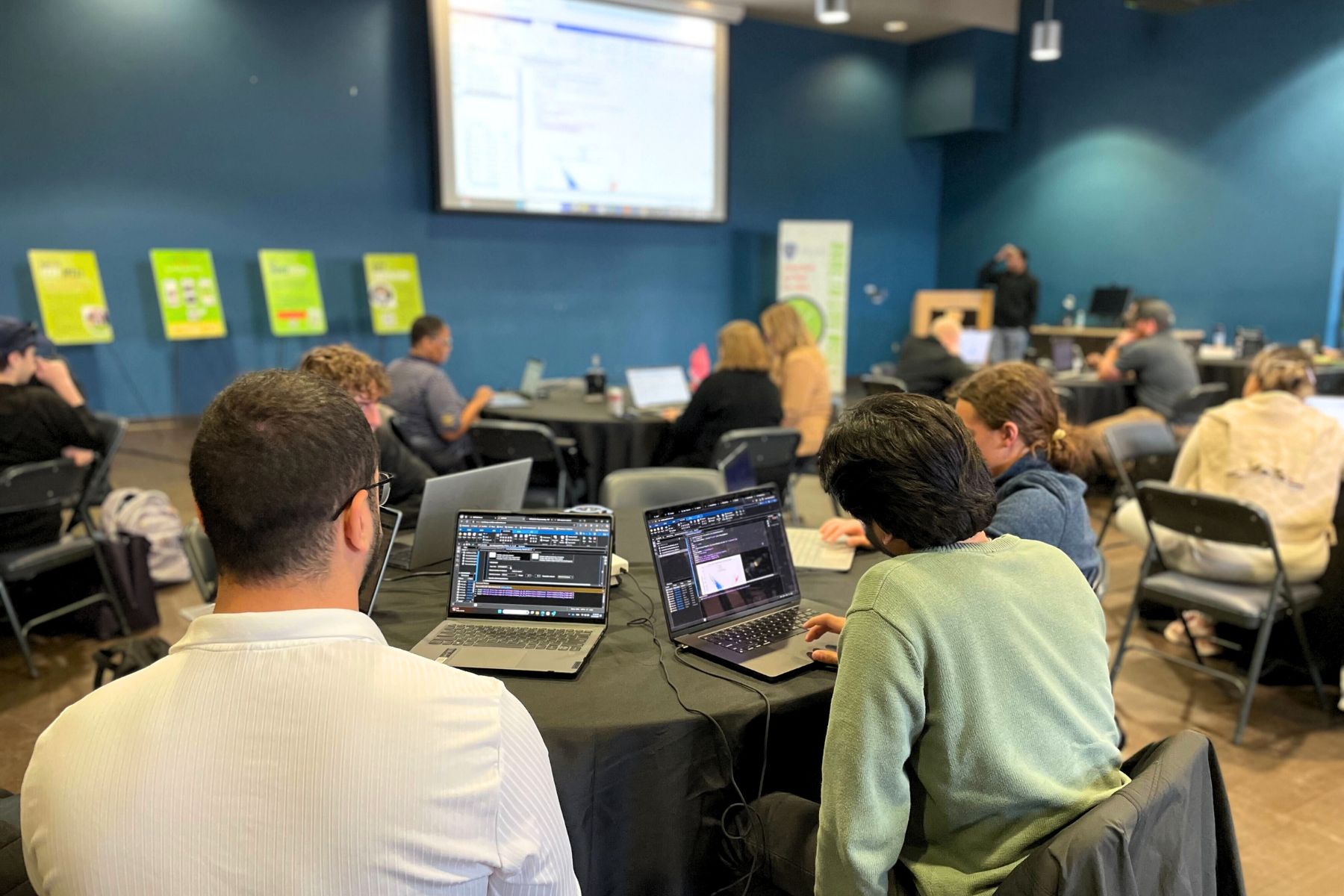
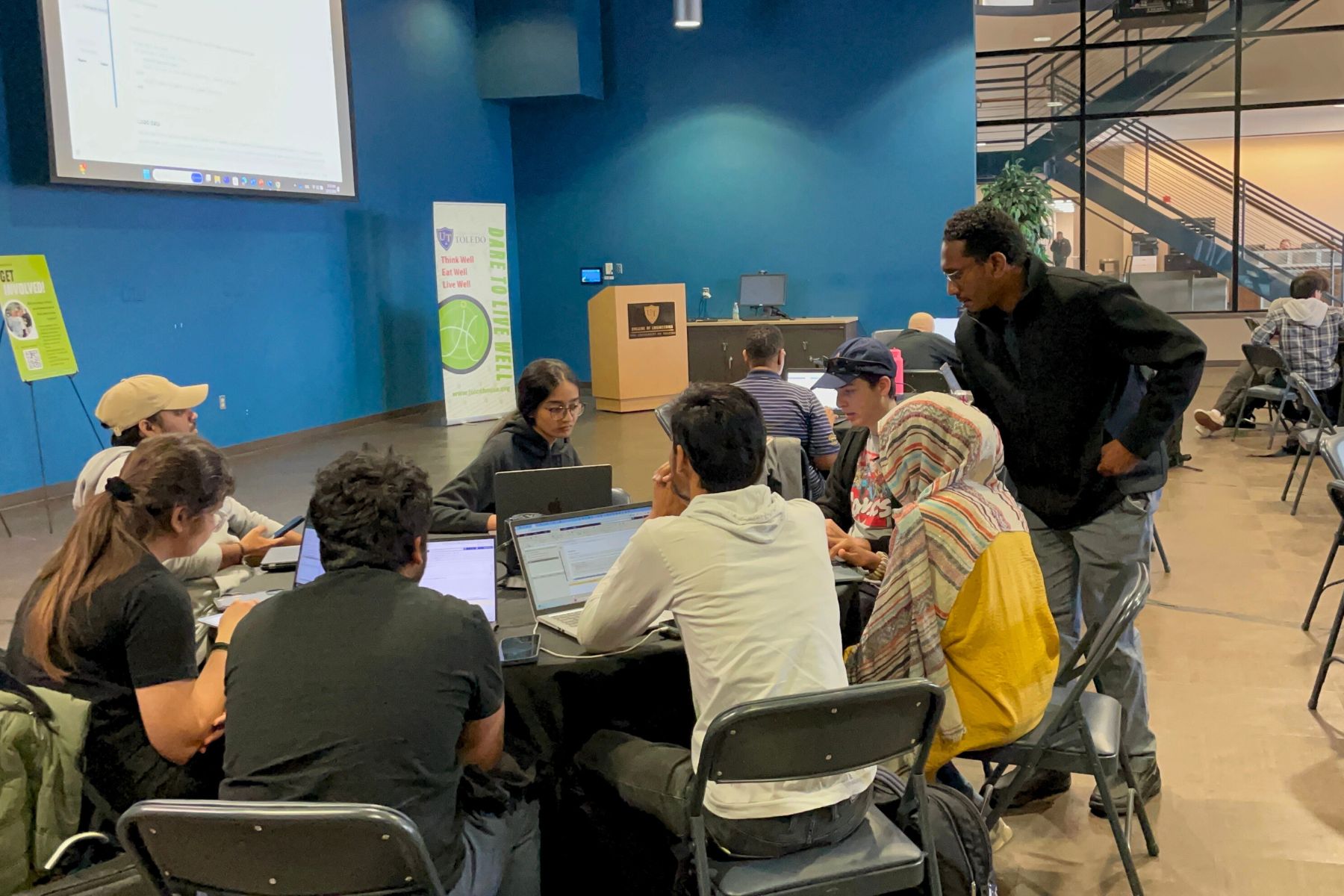
Left: Students utilizing MATLAB’s AI tools on their personal computers. Right: Mekky assisting students with their questions. By Anna DiAsio for Juice House.
“The focus is to get students more prepared for the industry…I think it’s great for the university because students get to learn a new thing that they can apply later on, so that will improve the quality of students in some sense. For the industry, in general, working closely with universities helps in getting students ready to do the job as soon as they join,” Mekky said. In other words, workshops like these provide skills that round out students.
Benway pointed out the event’s ability to bring people together, saying it’s a “great forum for idea sharing, for networking and for us as the vendor to highlight some of the tools and technologies that can support their needs.” He also brought up how it has created many bridges for him. “It’s really great to connect and see how people from all the different backgrounds and different levels want to use technology more,” he said.
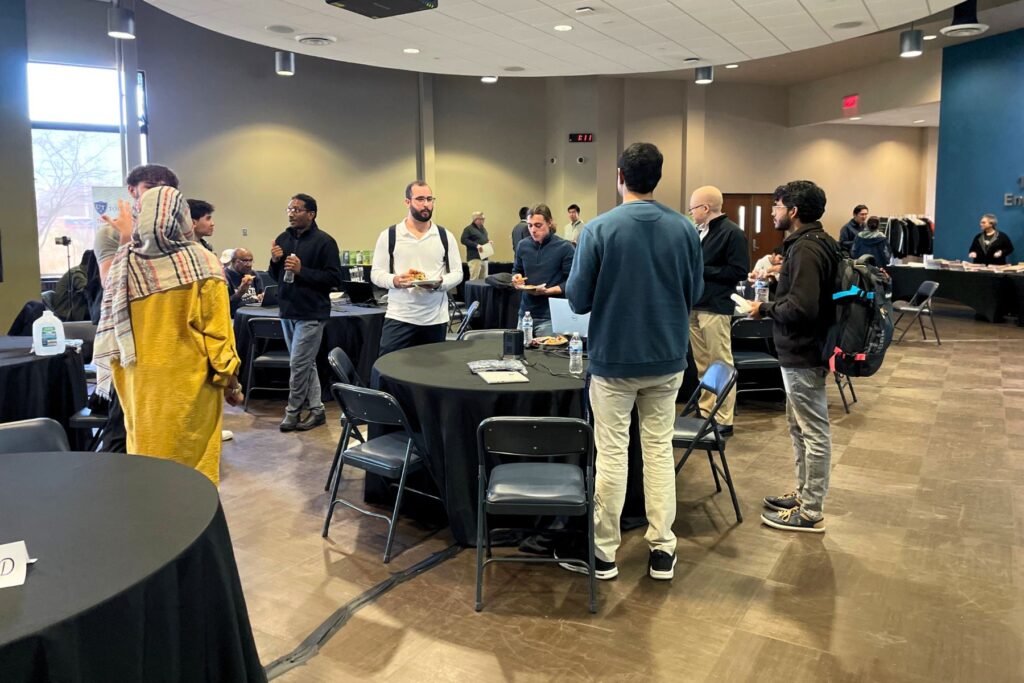
Students felt similarly.
“My favorite part is…getting connected with people,” Himel said.
“I think it’s significant because this opens people up not just to MATLAB, but MathWorks. They have a lot of things that help people in the industry,” Jerome said.
Interested in attending more events like this or want to get involved in more hands-on coding projects? Sign up to join Juice House’s iCode Blend.
